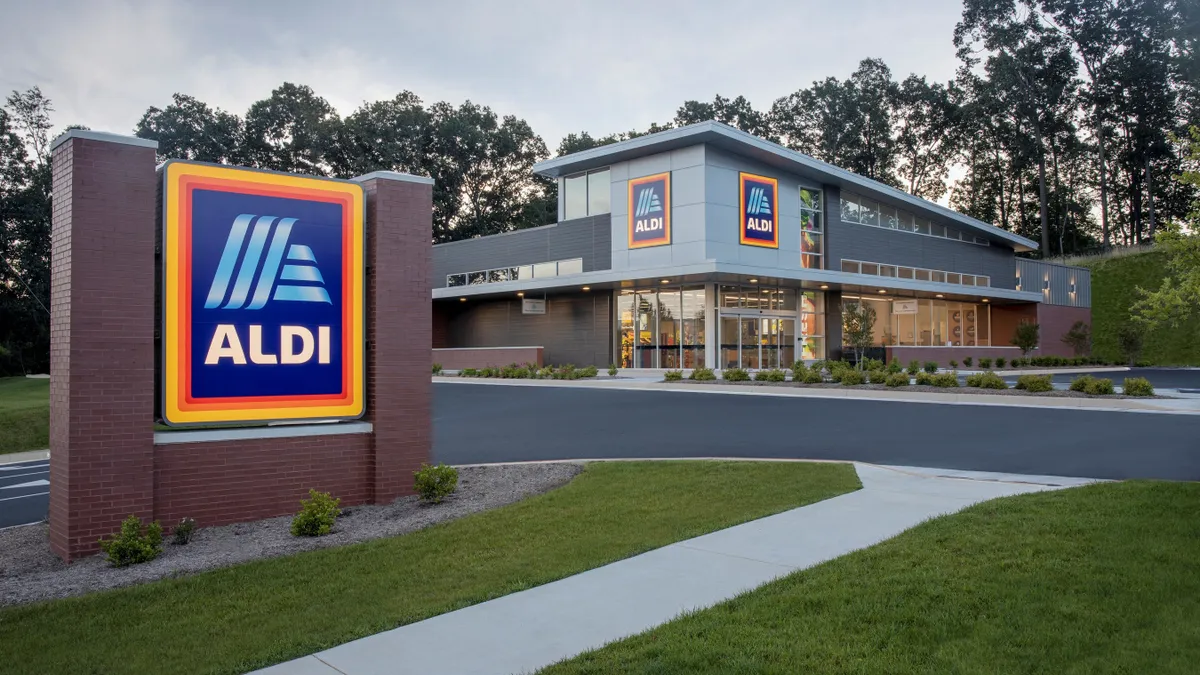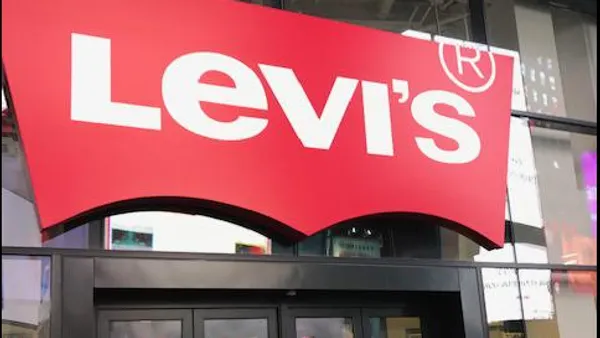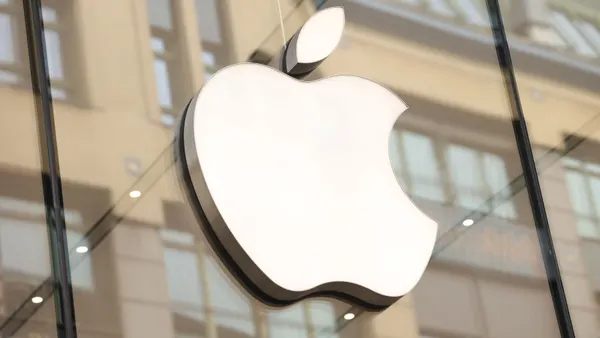Dive Brief:
- Aldi announced sustainability goals on Wednesday that address packaging materials, greenhouse gas emissions, operational waste, packaging materials and food waste.
- By 2025, the discount grocer aims to convert all Aldi-exclusive packaging to reusable, recyclable or compostable materials and cut back its packaging materials by 15%, according to a press release. By 2030, the grocer wants to halve the amount of food waste it currently produces.
- The announcement comes at a time when Aldi is growing its presence in the U.S., and grocers like Ahold Delhaize and Kroger are turning to greener goals.
Dive Insight:
Aldi's sustainability targets build on the company's current measures: recycling materials, donating food, and installing solar panels on stores and distribution centers.
The company has also been removing excess plastic from packaging and rolling out alternative packaging for perishables, while labeling products to encourage shoppers to recycle.
Aldi plans to eliminate Styrofoam from produce packaging by the end of this year. By the end of 2022, it aims to have 100% of its Barissimo and Simply Nature coffee sustainably sourced and to add solar panels to warehouses in Alabama and Kansas and approximately 60 stores. Currently, Aldi has solar panels installed at 111 stores and 12 distribution centers across the U.S.
The grocer also plans to continue pivoting to natural refrigerants in all of its stores, with all of its warehouses and almost 400 stores currently switched over.
While Aldi’s sustainability efforts stretch years back, the announced goals seem, in part, to respond to shopper demand for greener practices among companies.
“ALDI has a responsibility to protect the environment and we know it’s an important priority for our customers,” Jason Hart, CEO of Aldi U.S., said in a statement.
Aldi's green goals follow similar announcements from competing grocers. Kroger has said it wants to make its private-label packaging more sustainable by turning to 100% recyclable, compostable or reusable materials and cutting out excess packaging, and The Giant Company announced earlier this year that it also is turning to greener refrigeration alternatives to cut refrigerant emissions.















